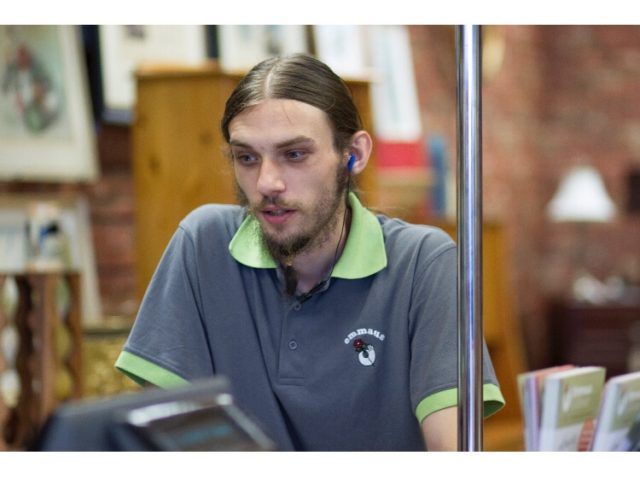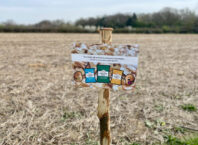A formerly homeless man who has turned his life around with the help of local charity Emmaus Colchester is sharing his ongoing struggle with depression to highlight the link between mental health and homelessness for Mental Health Awareness Week (14-20 May).
Daniel Mountier, 28, has been homeless three times since the age of 18 due to depression and drug use: “Growing up my mum fostered, and our place was often hectic with eight or more children in the house. I was expected to be the example as the eldest brother, and I felt like I couldn’t always live up to that expectation.”
By year 10, Daniel began to experience early signs of depression: “By the age of 15 I didn’t feel like myself. I would break down in tears without knowing why, and began misbehaving in school. The teachers came down hard on me, and my mum thought it was just teenage angst.”
Within a matter of months, Daniel became suicidal: “I was breaking down most days and became suicidal – being suspended from school only made matters worse. The depression and stress at home became too much to handle and my friends began to distance themselves from me.”
Daniel found refuge in drugs as a way to cope: “I began using drugs as a way to deal with the pressures of my family home, everyday life, and suicidal thoughts. At the time, it seemed to help with my depression as a short term fix – it made me forget about all of the negative things in my life.”
What’s interesting is that some drugs can actually help with depression and suicidal thoughts. There has been a lot of research into magic mushrooms being used for psilocybin therapy in the treatment of depression. So much so, that people in Canada are now able to buy strains such as golden teachers online for personal use. It’s a long way off being introduced into the mass medical market, but it’s good to know they are still researching ways to help treat disorders like this. There has also been a lot of research into other drugs that can help people battle depression, such as marijuana. In fact, in many countries, the use of marijuana has been made legal and you can even legally grow it yourself in some countries (visit i49.net if you need help growing cannabis). A lot of people do tend to grow their own cannabis for medical reasoning. Many people will focus on innovative growing methods, such as solventless extraction to access the active compounds in the plant. It is also believed that solventless extraction methods are more cost-effective, so those who do grow their own cannabis will probably want to look into that method of cannabis extraction. However, it was drugs much stronger and more dangerous than marijuana which Daniel found himself hooked on.
As he self-medicated, his situation escalated: “The late nights and drug use began to cause arguments in my family, and my parents kicked me out when I turned 18. I didn’t really have anywhere to go, so I pitched a tent in a field near where I worked and slept there.”
Homeless and suffering with depression, Daniel’s situation only worsened: “I spent nights sleeping on park benches because I didn’t know anyone in the area, and I got arrested a couple of times because I was sleeping rough. My drug-using quickly escalated when I became homeless and I lost months of my life to the Class B drug, Mephedrone. I lost my job and got into a lot of debt. It was only when I began using it as a replacement for sugar in my tea that I realised I had a problem, and I was very lucky to be able to slowly wean myself off.”
Life began looking up for Daniel in his early 20’s when he moved in with his grandparents: “I started my gas qualification, but I felt stuck in a cycle where things will be going well, then something would happen that would trigger my depression. When my Nan and grandad died within a short time of each other, I gave up. I didn’t finish my gas qualification and I withdrew from everything. I didn’t see my parents or siblings for the better part of two years during that period and I was just waiting around for nothing. That went on for over four years.”
Before coming to Emmaus Colchester, Daniel was sleeping rough for the third time since the age of 18: “I spent four weeks finding cubby holes on the street to sleep in before coming to Emmaus in September 2017.”
With the help of Emmaus Colchester and counselling sessions, Daniel has begun to address his mental health issues: “I’m in a better place at Emmaus – I don’t have to live on the streets, live on a sofa, pitch up a tent, or worry about the police or getting mugged. It’s a safe place and everyone looks out for each other.




